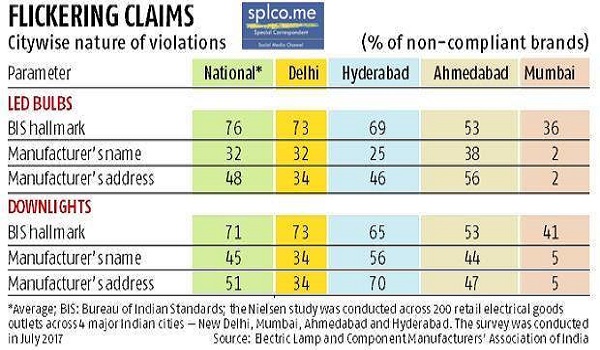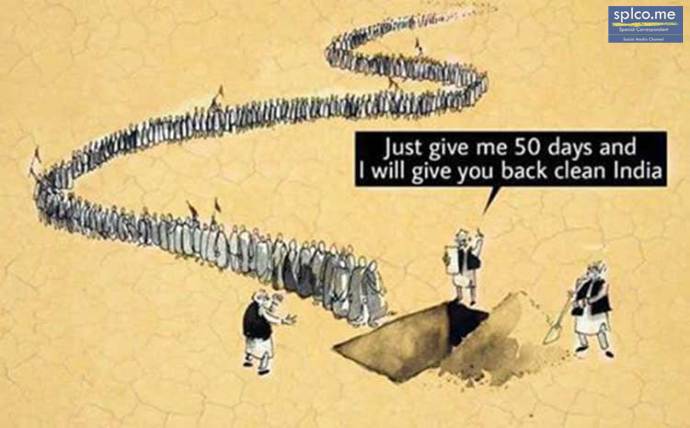In a worrisome development 76 per cent of light-emitting diode (LED) bulb brands and 71 per cent of LED downlighter brands across 200 electrical retail outlets were found to be non-compliant with consumer safety standards as prescribed and mandated for lighting products by the Bureau of Indian Standards (BIS) and the Union Ministry of Electronics and Information Technology.

The study was conducted by Nielsen study conducted across four major Indian cities — New Delhi, Mumbai, Ahmedabad, and Hyderabad.
“These spurious products pose a serious safety hazard for consumers, besides causing a significant loss in tax revenues for the Government of India as they are illegally manufactured and sold,” Electric Lamp and Component Manufacturers’ Association (ELCOMA), said in a statement.
The findings from the key markets surveyed showed that 48 per cent of LED bulb brands had no mention of the manufacturer’s address and 31 per cent brands did not have the manufacturer’s name.
Similarly, the study of LED downlighters showed that in the sample size, 45 per cent brands did not have the manufacturer’s name and 51 per cent brands had no mention of the manufacturer’s address.
According to this study, almost three-quarters of LED bulb brands surveyed in the national Capital (73 per cent) did not conform to the BIS standards (absence of the BIS mark) and the same is the case with LED down lighters.
According to the ELCOMA, the LED market in India is worth Rs 10,000 crore, with LED bulbs and downlighters constituting 50 per cent of the overall LED market. They are widely used in homes, offices, and workspaces.
Sumit Joshi, vice-chairman and MD, Philips Lighting India, said: “According to an ELCOMA study, the Indian LED lighting market has grown from Rs 500 crore in 2010 to Rs 10,000 crore today and constitutes over 45 per cent of the overall Rs 22,000 crore lighting industry in India. LED lighting will constitute a majority share of the lighting market in the next few years. It is important for the government to act against these spurious and non-branded products”.
Sunil Sikka, former president, ELCOMA, who represents Havells India also, said: “The market share of spurious and non-compliant LED products is steadily increasing. This is also a huge concern for the average consumer because 76 per cent of LED brands and 71 per cent of downlight brands do not adhere to consumer safety standards. This has led to an increase of unsafe and illegal products being used in households and offices”.
Bureau of Energy Efficiency (BEE) has also stated that star ratings for LED bulbs are to be mandatory to ensure only quality products are available to consumers. “However, the growing number of non-compliant and illegal products is worrisome as the non-compliant manufacturers undertake various cost-cutting mechanisms, making them less energy efficient”.














